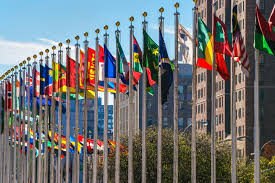Mr Chair, we address you in regard to your guideline on how stakeholders can work with states to contribute to the implementation of concrete, action-oriented proposals made by states at the sixth and seventh substantive sessions across various pillars of OEWG as captured in the zero draft of the third Annual Progress Report (APR),
Mr. Chair, the CfMA seeks to integrate the perspectives of global south actors in multistakeholder platforms – and processes like the informal dialogue convened by you here, Mr. Chair. We are based in Kampala, Uganda – East Africa. Mr. Chair, across the pillars here are our proposals for collaborative actions with states and non-state actors.
- States should work together with non-state actors, particularly civil society to develop national positions for global processes, especially state’s understanding of how international law applies in the contexts of ICT security. We proposed dedicated discussions on areas of convergence – particularly in respect to International Humanitarian Law and International Human Rights Law.
- Enhance coordination and collaboration at national, regional and international level between states and non-state actors especially within global south. For instance, non-state actors can provide support in the development of national positions at International ICT security forums. Stakeholders can also further contextualize norms and principles to their national realities, and work with stakeholders to monitor adherence.
- Enhance resilience of national Critical Infrastructure and Critical Information Infrastructure by developing and operationalizing national risks mitigation framework, resilience strategies for identifying and managing national critical assets and sectors.
- African states and in the global south alike, should include non-state actors like civil society and academia in national delegations at the OEWG on ICTs, and if this is not possible, to at the very least include them in national processes of preparing positions as well as informal negotiations with other states and non-state actors. We urge states with veto powers of non-ECOSOC accredited NGOs to use it responsibly, proportionally, and in a transparent manner, providing clear case by case justifications to other states and broader community to ensure diverse perspectives in future discussions.
- African governments should contribute to the facilitation and or participate in the creation of multi-stakeholder spaces at national, and continental levels that bring interested stakeholders, including business, Non-Governmental and Civil Society Organizations, academia together so that they come up with measures to support local and continental capacity building efforts in cybersecurity expertise, information sharing and training.
Thank You Chair


